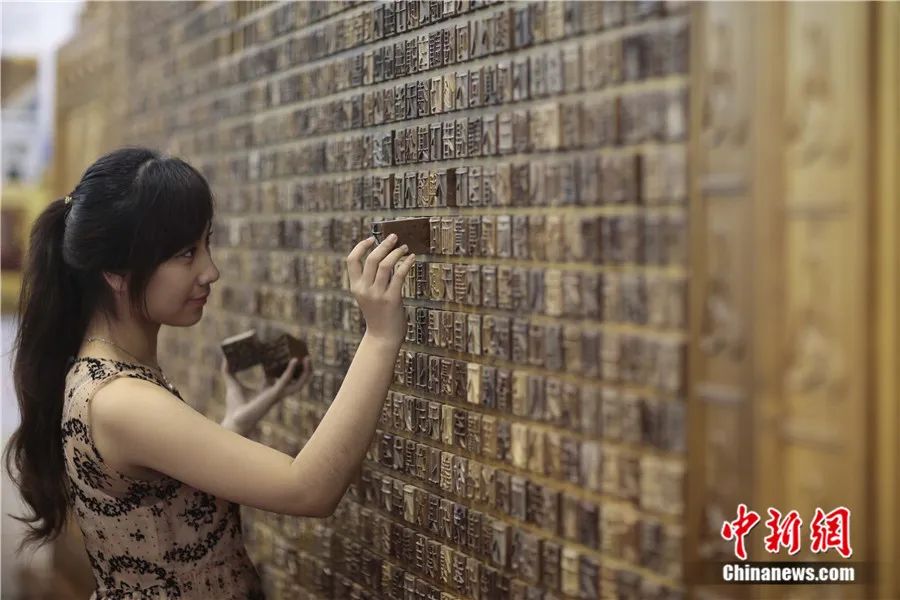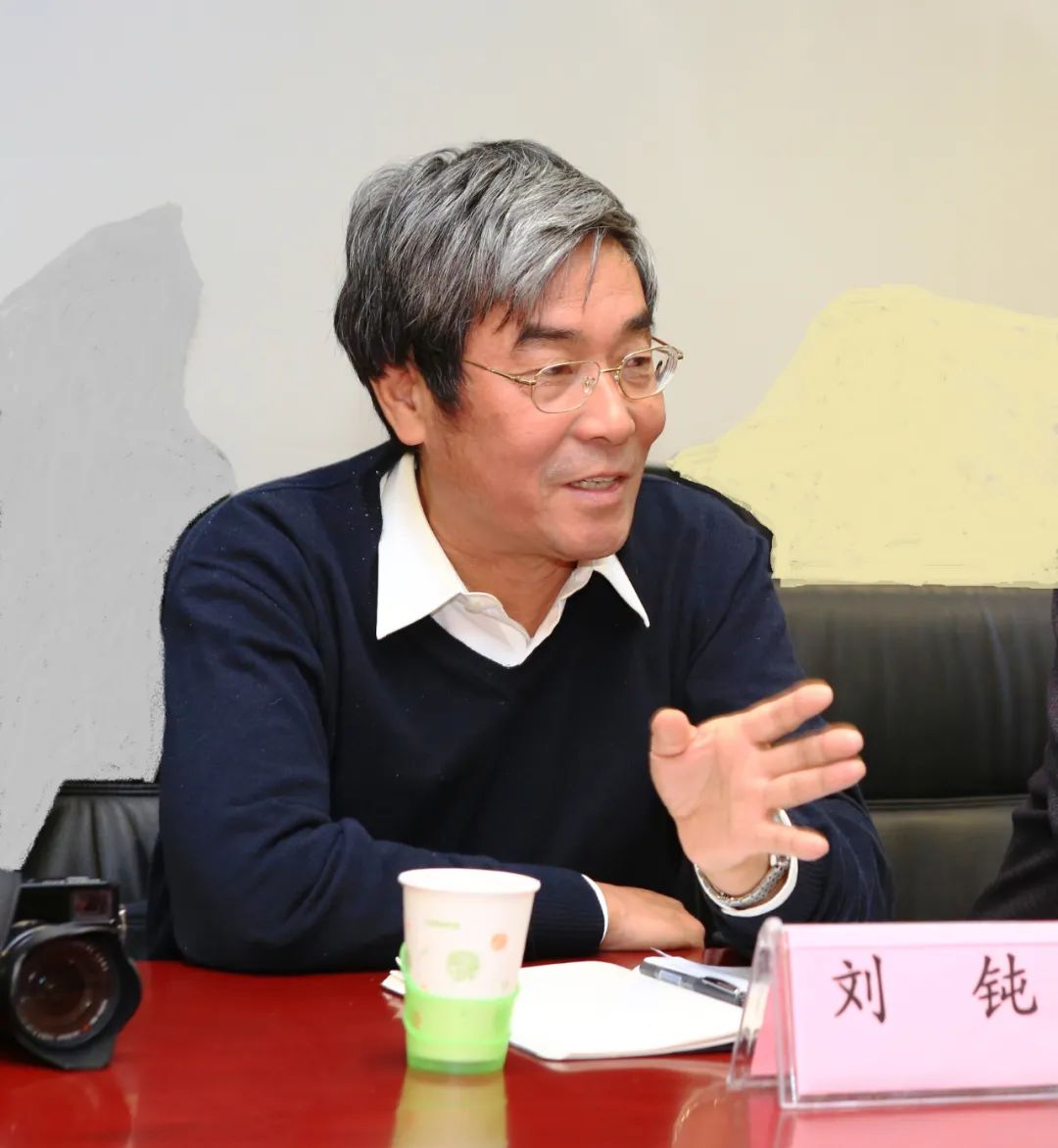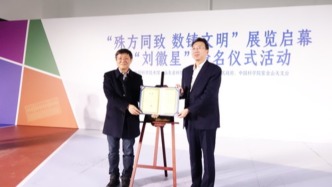·The result of "100-year change" does not necessarily have to distinguish "who is the boss", but expects the whole world to become more prosperous and more just. "Hundreds of rivers and seas" is a metaphor that Needham likes to use. It is not only suitable for describing the course of science, but also for describing the entire human civilization.
Since the middle of the 20th century, scholars at home and abroad who have studied China seem to be unable to avoid a "question of the soul" - "The Needham Problem". For more than half a century, many scholars have tried to answer this problem from the perspectives of different disciplines such as political system, economic model, social culture, and population geography. To this day, not only does the "Needham problem" still not have a definite answer, but even how to express this problem is still debated.
Liu Dun, a member of the board of directors of the Needham Institute of Cambridge, professor of the Department of History of Science at Tsinghua University, and former director of the Institute of History of Natural Science of the Chinese Academy of Sciences, said in an exclusive interview with China News Agency "Dongxiwen" recently that the "Needham Problem" is actually an outline , Joseph Needham developed a grand narrative about ancient Chinese science, technology and society. In the face of the ebb of globalization, the prevalence of the theory of clash of civilizations, the rampant hegemony, and the threat to the human living environment, Needham's intellectual heritage can be used as an antiseptic and a freshener.
He pointed out that the result of "a century of change" does not necessarily have to distinguish "who is the boss", but expects the whole world to become more prosperous and just. "Hundreds of rivers and seas" is a metaphor that Needham likes to use. It is not only suitable for describing the course of science, but also for describing the entire human civilization.
The following is a summary of the interview transcript:
China News Service reporter: In the 1950s, after Joseph Needham raised a series of questions about China and science in his famous book "History of Science and Technology in China" (SCC), Chinese and foreign scholars summarized and deduced them respectively, and the "Needham Puzzle" was derived. There are many versions. How would you sum up this famous conundrum? What is the core of it?
Liu Dun: The so-called "puzzle" is a term used by some Western scholars, which means confusing. In fact, it is not a question with definite solutions, multiple solutions or no solutions like mathematical problems. Although we sometimes say "Needham's problem", remember that it is just a theme, including two level. One is the "why not" form that the Chinese are accustomed to, that is, why did modern science not develop in Chinese civilization, but only in Europe? The other is the "why is" form, that is, from the 1st century BC to the 15th century AD, Chinese civilization was so much more effective than Western civilization in applying human's natural knowledge to actual human needs? With this outline, Needham developed a grand narrative about ancient Chinese science, technology and society.
China News Service reporter: As early as the 1920s, Feng Youlan believed that China has no science and cannot be attributed to geography, climate and economy, but should be attributed mainly to Chinese values and philosophy. Needham's SCC plan is to some extent a rebuttal to Fung's view. What do you think of the history of ancient Chinese science?
Liu Dun: First of all, Feng Youlan is a humanities scholar who studies ancient Chinese philosophy, and his focus is naturally on the ideological level; secondly, when he says "science", he means "modern science". On the other hand, Needham is a scientist who holds a materialist stance. He has engaged in scientific practice and has a full understanding of the historical and cultural environment in which modern science developed in the West, as well as modern science and ancient science, science and pre-science, and science and technology. .
He did not deliberately refute Feng Youlan. It is meaningful to discuss the understanding of natural knowledge in ancient China from the perspective of values and philosophy. He is more concerned with society (such as imperial rule based on the selection system of Confucian scholars, ethical norms based on benevolence, righteousness, loyalty and filial piety, and the social status of merchants, etc.) and economics (such as agriculture and water conservancy, including geography, climatic factors, as well as inhibiting business, etc.). "Needham's Problem" is not a mathematical problem, but the best response to the historical development of both positive and negative representations. Among them, the best and most comprehensive work is reflected in Needham's masterpiece "History of Science and Technology in China" .

The China Science and Technology Museum in Beijing attracts visitors. far boat
China News Service reporter: There is a view in the academic circles that the "Needham problem" itself has limitations. The default is that the "advanced" of Western science and the "backwardness" of China at the same time are still based on the supremacy of Western civilization and the assumption of scientific progress. What do you think are the main reasons that lead China and the West to embark on different paths of modernization?
Liu Dun: This is a plausible criticism. Needham never spoke about the superiority of Western civilization, on the contrary, he was a powerful refutation of "Western-centrism". Indeed, he is the successor of the "Scientific Progress Theory" advocated by the European Enlightenment masters in the 18th century. He was deeply influenced by Marxism and believed that society evolved from a low-level form to a high-level one, and the key to social progress was the economy. When it develops to a certain extent, there will be a cultural form that adapts to it. Therefore, for a Chinese society whose economy was far ahead of the West in a long historical period, the absence of the cultural form of modern science is a problem that he needs to investigate. This is the historical origin of the "Needham problem", which has a strong ideological color.

Visitors walk in the China Science and Technology Museum in Beijing. far boat
Rather than saying that the "Needham problem" has limitations, it is better to say that some people interpret "historical determinism" too simply. This needs to be supplemented by drawing on research results from different approaches, such as the Chinese view of time, the comparison between the ancient Chinese thought of "harmony between man and nature" and the Western "natural law", etc. These are all included in Needham's grand narrative. As for the process by which the West embarked on the path of modernization, it was the logical result of a series of historical events: the Great Geographical Discovery, the Renaissance, the Reformation, and most importantly, the scientific revolution of the 16th and 17th centuries. These did not happen in China, and it was Needham who tried to analyze the different social and economic structures between China and the West. As for China's recent modernization, it was passively introduced in the environment of internal and external troubles after the Western Scientific Revolution and Industrial Revolution, and some aspects have not been completed until now.
"Advanced" and "backward" are objective facts, and the definitions of the two are not absolute. Whether "advanced" or not is related to time and specific matters. advanced". In terms of modern science from the 17th century onwards, the West was far more advanced than contemporary China; and in the Middle Ages (that is, "from the 1st century BC to the 15th century AD" in Needham's words), China was ahead of the West in many fields.
China News Service reporter: Needham spoke highly of the "Four Great Inventions" in ancient China. What impact did ancient Chinese science and technology represented by these have on the development of modern Western science?
Liu Dun: As early as the middle of the 16th century, some people in the West proposed that the magnetic compass, gunpowder and printing were unparalleled inventions in the entire ancient world. Later Francis Bacon and Marx both reiterated and developed this assertion, but they did not clearly point out their origins. . In 1930, Chinese historian Xiang Da added papermaking and became the "Four Great Inventions". On January 1, 1951, the New Year's Day editorial of "People's Daily" clearly mentioned: "In a very early time, China had the invention of the compass. Even 1,700 years ago, the papermaking method had been invented. Two thousand years ago, stereotyped printing was invented. Eight hundred years ago, movable type printing was invented. The application of gunpowder was also before the Europeans." ” is beginning to be widely accepted.
Workers in the "Super Rice Paper" production workshop of China Xuan Paper Co., Ltd. in Jing County, Anhui Province are inspecting (cutting) paper. Photo by Han Suyuan
Regarding the meaning of the "Four Great Inventions", Needham basically inherited Marx's argument, that is, it promoted the demise of the European feudal system. Of course, there are more inventions in ancient China. Joseph Needham once listed 26 machines and related technologies that were transmitted from China to the West, such as porcelain, piston bellows, jacquard machines, silk reeling machines, chest strap and neck strap harnesses, cast iron, Wire suspension bridge, swimming gimbal, etc. He also said that just because 26 letters are used up, there are actually many even more important examples.

On June 22, 2012, the "China Movable Type Screen" engraved with Lao Tzu's "Tao Te Ching" appeared at the 4th China International Copyright Expo in Beijing. Photo by Sheng Jiapeng
Experts from the Institute of Natural Science History of the Chinese Academy of Sciences and other units have re-examined this issue in recent years based on criteria such as originality and world influence, and put forward 30 major inventions, including technical inventions and things involving scientific ideas and methods. , such as decimal notation and calculation, abacus, equatorial astrometric instruments, canal locks, deep well drilling, rockets, traditional Chinese medicine, millet and rice farming, ecological agronomy, etc.

Collectors showcasing their favorite abacus. Photo by Liu Kegeng
China News Agency reporter: H. Floris Cohen commented on the "Needham Problem" as "In the academic history of the 20th century, few simple questions can lead to such spectacular results." In the 21st century, the global epidemic superimposed What are the implications of the "Needham Problem" in today's century of change?
Liu Dun: Cohen is one of the most influential historians of science today. This sentence comes from his famous book "History of Scientific Revolutions", which is a positive affirmation of the meaning of "Needham's Problem". "The Needham Problem" is a tense thesis, including Western and non-Western, science and technology, ancient and modern, scientific unity and cultural diversity. The greater the tension of the outline, the richer the connotation and the more prominent the results. Specifically, its "spectacular results" are reflected in the following aspects: it contains the themes of scientific revolution and modernization, and it is the first of its kind in cross-cultural research. First, it helps to promote the study of big history, it highlights the contemporary value of traditional culture, and it provides a new historical basis for thinking about the Chinese road. In the face of the ebb of globalization, the prevalence of the theory of clash of civilizations, the rampant hegemony, and the threat to the human living environment, Needham's intellectual heritage can be used as an antiseptic and a freshener.
Just as biological diversity is the material basis for the endless existence of the earth's homeland, cultural diversity is the spiritual pillar for the prosperity of human civilization; similarly, in international relations, the multipolar world is more inclined to rationality and fairness than the unipolar world, and multilateralism is more Unilateralism is more conducive to checking and balancing bullying and maintaining world stability.
In September 2019, the in-orbit demonstration of China's first artificial earth satellite Dongfanghong-1 model in the China Science and Technology Museum attracted audiences. Photo by Sun Zifa
China is an industrially backward country, and modernization cannot be achieved by repeating the path of the West over the past few hundred years. At a moment like this, one should delve into the "why not" form of the "Needham Conundrum", what factors hinder the development of science in China? What are the things that are beneficial to modern science that are missing from our traditional culture? What are the things we urgently need to follow up with? Such as rational enlightenment and advocacy of pure academics. On the other hand, the "why" form of the "Needham Conundrum" can enhance self-confidence, and you don't have to belittle yourself as a latecomer.
"Century change" is a saying that is often heard today. The result of the change is not necessarily to distinguish who is the boss, but to expect the whole world to become more prosperous and more just. "Hundreds of rivers and seas" is a metaphor that Needham likes to use. It is not only suitable for describing the course of science, but also for describing the entire human civilization.
Interviewee Profile:

Liu Dun is a professor at the Department of History of Science at Tsinghua University and a researcher at the Institute of History of Natural Science, Chinese Academy of Sciences. Research fields include the history of Chinese mathematics, the history of Sino-foreign scientific and technological exchanges, scientific culture, science and art, etc. Concerned about Needham issues for many years, is now a member of the Board of Directors of the Needham Institute in Cambridge.
(Original title "Revisiting the "Needham Problem", Why Does the Hundred Years of Changes Need "Hundreds of Rivers and Seas"?")




Comments